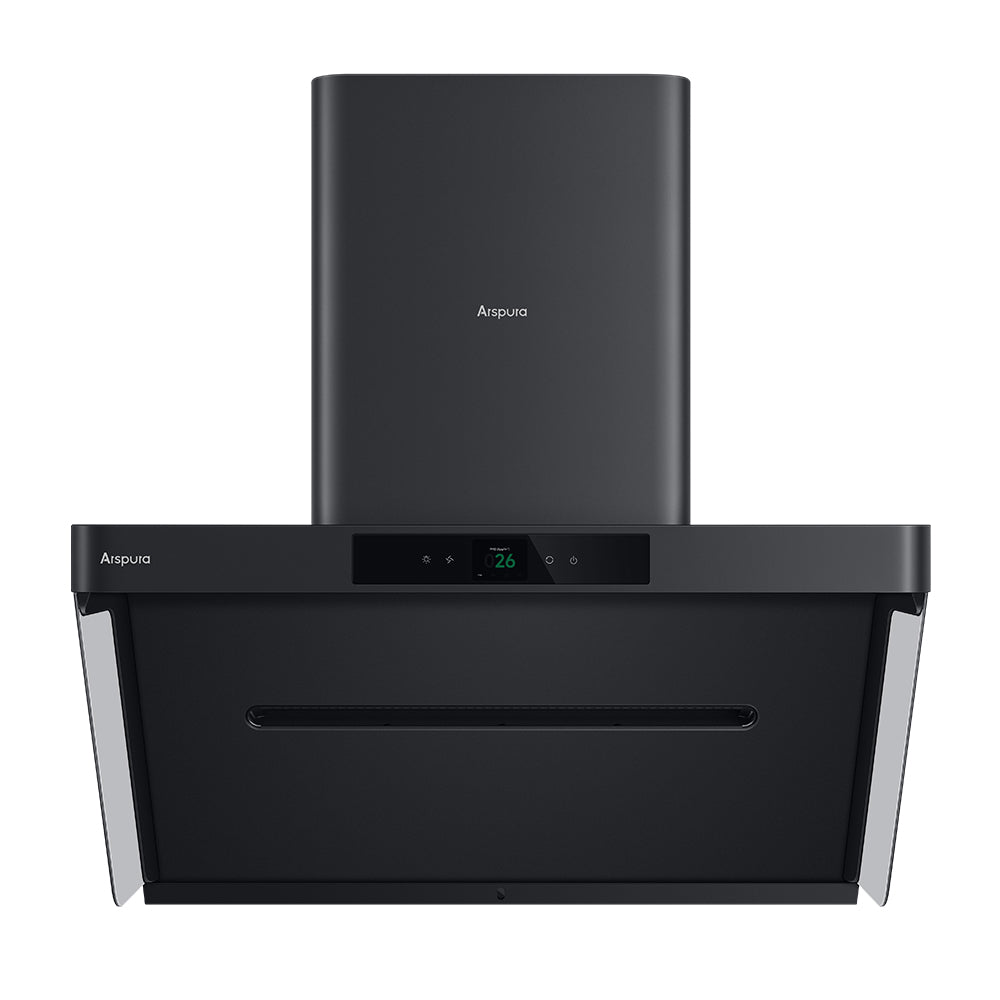
A range hood serves as the frontline defense against smoke, grease, and cooking odors that can quickly overwhelm your kitchen. Without proper ventilation, these airborne particles settle on surfaces, creating stubborn residue while compromising indoor air quality. The right range hood transforms your cooking experience by efficiently capturing smoke at its source, preventing it from spreading throughout your home and triggering smoke alarms during high-heat cooking.
Selecting the appropriate range hood involves more than choosing an attractive design. The effectiveness of smoke removal depends on factors like airflow capacity, installation type, and how well the unit matches your cooking habits. A poorly chosen range hood may struggle to clear smoke from a powerful gas range, while an oversized unit could create excessive noise without added benefit. Understanding these considerations ensures you invest in a range hood that delivers genuine performance, maintaining a clean and comfortable kitchen environment for years to come.
Understanding the Basics of Range Hoods
A range hood is a ventilation appliance mounted above your cooktop or range that captures and removes smoke, steam, grease particles, and cooking odors from your kitchen. It works by drawing contaminated air upward through filters using an internal fan system. The captured air either vents outdoors through ductwork in ducted models or recirculates back into the kitchen after passing through charcoal filters in ductless versions. The hood’s canopy design creates a capture zone directly above your cooking surface, maximizing efficiency by containing rising smoke before it disperses. Beyond smoke removal, range hoods protect your kitchen from grease buildup on cabinets and walls while improving overall air quality, making them essential for any cooking space.
Key Factors to Consider When Choosing a Range Hood
Airflow and Ventilation
Airflow capacity, measured in cubic feet per minute (CFM), determines how quickly a range hood can clear smoke from your kitchen. The general rule recommends 100 CFM for every 10,000 BTUs of cooking power for gas ranges, while electric cooktops typically need at least 250-400 CFM. Kitchens with high ceilings, open floor plans, or frequent high-heat cooking require higher CFM ratings to compensate for the larger air volume. However, excessive airflow can create negative pressure in tightly sealed homes, potentially causing backdrafting issues with other appliances. Match your CFM rating to your cooking style and kitchen size rather than simply choosing the highest number available.
Smoke and Odor Removal
Effective smoke removal depends on both the hood’s capture area and its filter system. Ducted range hoods excel at eliminating smoke by venting it outdoors, providing superior performance for heavy cooking that generates substantial smoke and grease. Ductless models rely on charcoal filters to trap odors before recirculating air, making them suitable for light to moderate cooking but less effective with persistent smoke. The hood should extend at least three inches beyond your cooktop on each side to create an adequate capture zone. Wall-mounted and island hoods need different approaches—island hoods typically require 50-100 additional CFM since they lack walls to contain rising smoke. Consider your cooking frequency and typical smoke production when evaluating removal capabilities, as filters require regular replacement or cleaning to maintain effectiveness.
Energy Efficiency
Energy-efficient range hoods reduce operating costs while maintaining performance through optimized motor design and LED lighting. Look for models with variable speed controls that let you adjust power based on cooking intensity, running at lower speeds for simmering and reserving maximum CFM for smoke-heavy tasks. Energy Star certification isn’t currently available for range hoods, but checking the motor’s wattage provides insight into consumption—efficient models typically use 200 watts or less at maximum speed. LED bulbs consume significantly less energy than traditional halogen lights while lasting longer and generating less heat. Timer functions and automatic shut-off features prevent unnecessary operation after cooking ends. Some advanced models include sensors that detect smoke levels and adjust fan speed automatically, optimizing energy use without manual intervention while ensuring adequate ventilation.
Quiet Operation
Noise levels, measured in sones, dramatically impact kitchen comfort during cooking. Range hoods operating at 1-3 sones provide whisper-quiet performance comparable to a refrigerator hum, while units above 6 sones can disrupt conversation and become intrusive. Internal blower systems generally produce less noise than external or inline blowers since sound dampening materials can be incorporated into the hood design. Checking manufacturer specifications for sone ratings at different speed settings helps you understand real-world noise levels, as maximum CFM often comes with increased sound.
Top Range Hood Models for Smoke Removal
Model 1: Under-Cabinet Range Hoods
Under-cabinet range hoods mount directly beneath kitchen cabinets, offering space-efficient ventilation for standard cooktop configurations. These models excel in kitchens with limited vertical space, fitting seamlessly into existing cabinetry while providing reliable smoke capture for everyday cooking. Most under-cabinet hoods feature ducted operation with CFM ratings between 300-600, suitable for typical residential gas and electric ranges. The compact design positions the capture area close to the cooking surface, improving efficiency even at moderate airflow levels. Installation remains straightforward since ductwork can route through cabinets or directly through exterior walls. However, the confined space sometimes limits filter size and motor capacity compared to larger hood styles. These units work best for kitchens with standard 30-inch cooktops and moderate cooking demands. The close proximity to cabinets means grease filters require frequent cleaning to prevent buildup. Sound levels vary considerably across models, with quality units incorporating insulation to reduce noise transmission into cabinets above. Under-cabinet hoods represent the most budget-friendly option while delivering adequate smoke removal for households that cook regularly but don’t frequently use high-heat techniques requiring maximum ventilation power.
Model 2: Wall-Mounted Chimney Range Hoods
Wall-mounted chimney hoods create a bold focal point while delivering superior smoke removal through their expansive capture zones and powerful ventilation systems. These statement pieces attach directly to the wall above your cooktop, with a chimney stack extending to the ceiling that conceals ductwork while adding architectural interest. The larger canopy design—typically 36 to 48 inches wide—captures smoke more effectively than compact alternatives, making them ideal for serious home cooks who regularly use high-heat cooking methods. CFM ratings commonly range from 600 to 1200, providing the muscle needed to clear heavy smoke from searing, stir-frying, and wok cooking. The vertical design allows manufacturers to incorporate multi-layer baffle filters that trap grease more efficiently than standard mesh filters. Many chimney hoods feature adjustable chimney heights to accommodate various ceiling configurations, though installation requires careful planning to ensure proper duct routing through walls or ceilings. The prominent position and larger motors can generate more noise than under-cabinet models, but premium versions include sound-dampening technology and variable speed controls. Brands like Arspura offer wall-mounted chimney hoods that suit open-concept kitchens where the range sits against a wall, combining functional ventilation with design impact that complements modern and traditional kitchen aesthetics alike.
Model 3: Island Range Hoods
Island range hoods suspend from the ceiling above freestanding cooktops, providing 360-degree smoke capture without surrounding walls to contain rising air. These ceiling-mounted units face the greatest ventilation challenge since smoke can disperse in all directions, requiring 50-100 additional CFM compared to wall-mounted equivalents. The installation demands careful planning—ductwork must route through ceiling joists to exterior vents, often requiring professional assistance to navigate structural obstacles. Island hoods typically feature wider canopies extending several inches beyond the cooktop perimeter to compensate for the lack of wall containment, with sizes ranging from 36 to 60 inches. The exposed position makes design crucial, as the hood becomes a central kitchen feature visible from multiple angles. Glass canopies, stainless steel finishes, and sculptural shapes transform these functional appliances into design statements. Despite their visual appeal, island hoods generally cost more than wall-mounted alternatives due to complex installation and the need for higher CFM ratings. They work best in large kitchens with adequate ceiling height—at least 9 feet—to maintain proper clearance while ensuring effective smoke capture. The open installation allows heat to dissipate more readily, but also means these units must work harder to achieve the same smoke removal efficiency as wall-backed models.
Making the Right Choice for Your Kitchen
Choosing the best range hood for smoke removal requires balancing ventilation power with your specific cooking needs and kitchen layout. Prioritize CFM ratings that match your cooktop’s heat output and cooking frequency, ensuring the hood extends beyond your cooking surface to create an effective capture zone. Ducted models provide superior smoke removal for heavy cooking, while ductless options work adequately for lighter use when exterior venting isn’t feasible. Consider noise levels alongside performance, as a range hood running at lower sones encourages consistent use without disrupting your kitchen environment.
Whether you select an under-cabinet model for space efficiency, a wall-mounted chimney hood for powerful ventilation, or an island hood for open kitchen layouts, ensure the unit complements both your cooking habits and kitchen design. Regular filter maintenance preserves smoke removal effectiveness regardless of which model you choose. By evaluating airflow capacity, installation type, energy consumption, and sound levels against your practical requirements, you’ll invest in a kitchen hood review that maintains clean air and enhances your cooking experience for years ahead.
